Banking from your phone?
Download our app
Welcome Back
You can access your accounts here.

Banking from your phone?
Scan the code to download our app.

featured
2023-10-13
Security
published
How to avoid phone scams

-
In today's digital age, people like us often find ourselves in the crosshairs of deceitful phishing scams, putting our hard-earned money at risk. However, it is possible to avoid becoming a casualty. By understanding what your bank would never ask and arming yourself with knowledge, you can steer clear of these fraudulent tactics.
October marks Cybersecurity Month, making it the perfect time to focus on fortifying your financial defenses. In this blog, we'll provide you with practical insights on how to safeguard your finances against phone call scams. Let's get started and equip you with the knowledge needed to stay safe.
Never Share Sensitive Information:
Scammers often pose as friendly bank representatives to gain your trust. They might ask for your bank password, PIN, or a one-time login code, claiming it's for security purposes or account verification. It is important to remember that legitimate banks, like well-fortified strongholds, never request such sensitive details over the phone. Instead, their security protocols are designed to protect your information.
Don't Trust Caller ID:
Just as military personnel scrutinize their surroundings for hidden threats, you should approach incoming calls with skepticism. Scammers employ the art of "spoofing" to camouflage themselves by manipulating caller IDs, making it appear as if they are calling from your bank. Even if your phone screen displays your bank's name or number, maintain vigilance. To avoid falling for this trick, always be suspicious of any incoming call, even if your phone screen shows your bank's name or number.
Hang Up, and Verify:
When receiving an unexpected call from someone claiming to represent your bank, the safest response is to end the call immediately. To ensure you are speaking with a legitimate bank representative, find the official customer service number on your bank's official website or on the back of your bank card. Call this number to confirm the caller's identity and discuss any concerns you may have. (To contact Armed Forces Bank’s Client Care, call 888-929-2265; Monday-Friday, from 8:00 AM - 7:00 PM, Central Time).
Never Forward Your Phone or Email:
Much like classified information, your communications are your digital secrets. Scammers may ask you to forward your calls or emails to another number or address, claiming it is for technical reasons or account security. Do not comply with these requests. By granting access to your communications, you are opening the gates to your sensitive information and accounts. Always be cautious when asked to make changes to your communication settings.
Watch Out for False Urgency:
Scammers frequently use tactics to create a false sense of urgency, attempting to force your hand. They may claim that your account is at risk of closure or that they've detected suspicious activity. Real banks never do this. Take the time to assess the situation and verify the caller's legitimacy before acting.
Remember, your bank's primary concern is your financial security, and they would never jeopardize it by requesting sensitive information over the phone. Always err on the side of caution when facing unexpected calls.
What should I do if I fall for a phone scam?
In the unfortunate event that you do find yourself entangled in a phone scam, here’s how to initiate your counteroffensive:
- Check IdentityTheft.gov: If you've shared personal information like your Social Security Number or bank account details with a scammer, visit IdentityTheft.gov for guidance on the steps to take, including monitoring your credit.
- Change Your Passwords: If you've revealed any usernames or passwords, change them immediately to protect your accounts.
- Contact Your Bank: Report the breach to your bank. They will guide you on additional steps to safeguard your financial assets.
- File a Police Report: Documentation is crucial for any type of security breach. Consider filing a police report to record of the incident.
- Report to the Federal Trade Commission (FTC): Report the scam to the Federal Trade Commission at 1-877-FTC-HELP (382-4357) or through their website. Your report contributes to the ongoing battle against fraudulent activities.
Phone scams can lead to financial losses, ranging from a few dollars to your entire life savings. To shield yourself from such threats, stay vigilant and informed so you can protect yourself and respond if you ever find yourself targeted by a phone call scam.
Does your bank keep your identity safe?
Armed Forces Bank prioritizes your financial security. In fact, accounts like Access Rewards Checking have safeguards in place to help combat scams:
- Identity theft reimbursement coverage*
- Comprehensive identity theft resolution services
- Credit file monitoring
- Credit report and score
- Identity monitoring
- Dark web monitoring
Learn more about smart cybersecurity practices in the Education section of our website (under “Banking Safely and Securely”).
Member FDIC
|
INSURANCE DISCLOSURE: Insurance products are NOT insured by FDIC or any Federal Government Agency; NOT a deposit of or guaranteed by the bank or any bank affiliate. Coverage is provided through the company named in the Guide to Benefit or on the certificate of insurance. |